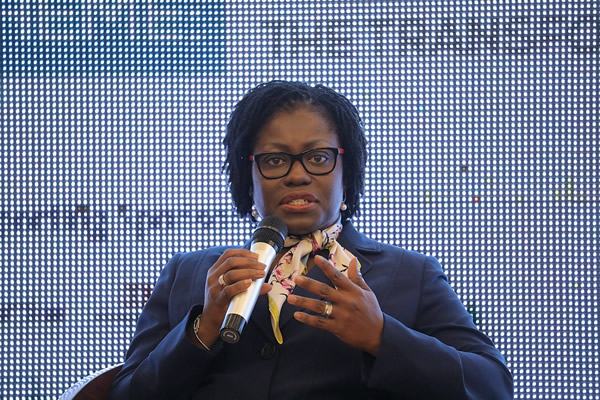COVID-19 impact on women to worsen – BoG Dep. Governor calls for support
A Second Deputy Governor of the Bank of Ghana (BoG), Elsie Addo Awadzi, has called for support for women as they are the hardest hit by the coronavirus pandemic.
“In the case of emerging and developing economies, these disproportionate impacts on women are bound to be worse, given the weak social protections that exist,” she said in her remarks at the Alliance for Financial Inclusion (AFI)-BoG Webinar on Integrating Gender Considerations Into COVID-19 Policy Solutions on September 14.
She observed that the impact of COVID-19 is pushing women out of both formal and informal employment and business, and in some cases from the financial system, further widening the gender gap in access to finance.
“In many countries, COVID-related restrictions came at a higher price for women than for men, given that more women tend to be involved in informal, temporary, or part-time work, or in informal business partly due to the domestic responsibilities they disproportionately shoulder,” she noted.
“What is more, the pre-existing gender gap in access to finance has meant that many women adversely impacted by the pandemic have little or no savings to cushion them and have no access to credit or grants to save their businesses from collapse”.
She pointed out that the situation was not limited to developing countries as “advanced economies are also grappling with the distributional consequences of the pandemic”.
She cited an IMF report which found evidence that women in Japan were more negatively impacted by the pandemic due to disparities in the labour market and the fact that more women than men had to drop out of the job market to take care of their children amidst massive disruptions to childcare and schools.
Hence the IMF advocates for policies to promote better work-life balance and gender equality to help enhance female employment opportunities and women’s economic empowerment in the ‘new normal’ after the pandemic is under control.
She highlighted that “the gender-inclusive finance agenda is now more critical than ever before, and a coordinated effort is required to accelerate action going forward.
On his part, BoG Governor, Dr Ernest Addison admitted there was a global consensus that the pre-COVID 19 economic order was skewed against women.
Women in Africa are responsible for 70% of crop production, 50% of animal husbandry and 60% of market activity. Women undertake nearly 100% of food processing activities, in addition to child care and other responsibilities in households.
Women’s formal ownership of SMEs currently stands at around a third of all registered SMEs in Africa, and women-owned SMEs are more likely to have lower sales and annual turnover, less employees, and smaller size than those enterprises owned by men, the BoG Governor pointed out.
A March 2020 African Development Bank study also confirms that female entrepreneurs dominate key growth sectors such as agriculture, textile and garments and yet lack access to critical funding.
“These statistics tell a story that is troubling particularly in the context of the new economic realities that the pandemic has unleashed on the developing world.
“This is not the time to leave anyone behind, and we must begin to be more intentional about bridging the financial inclusion gap and the disparities that exist from a gender perspective,” he noted.
YOU MAY ALSO BE INTERESTED IN: COVID-19 Has Rendered 500,000 People Jobless In Ghana – TUC



